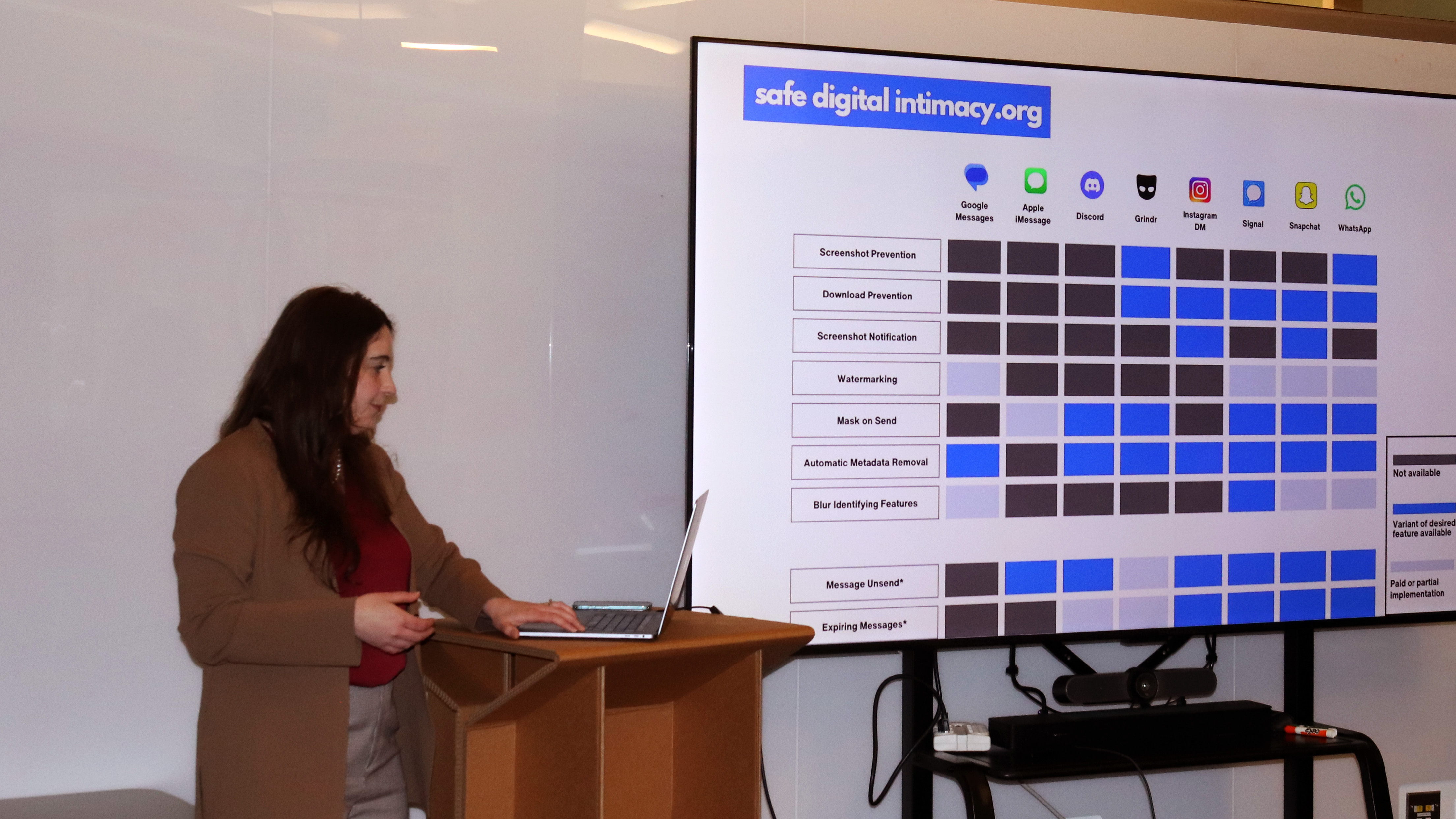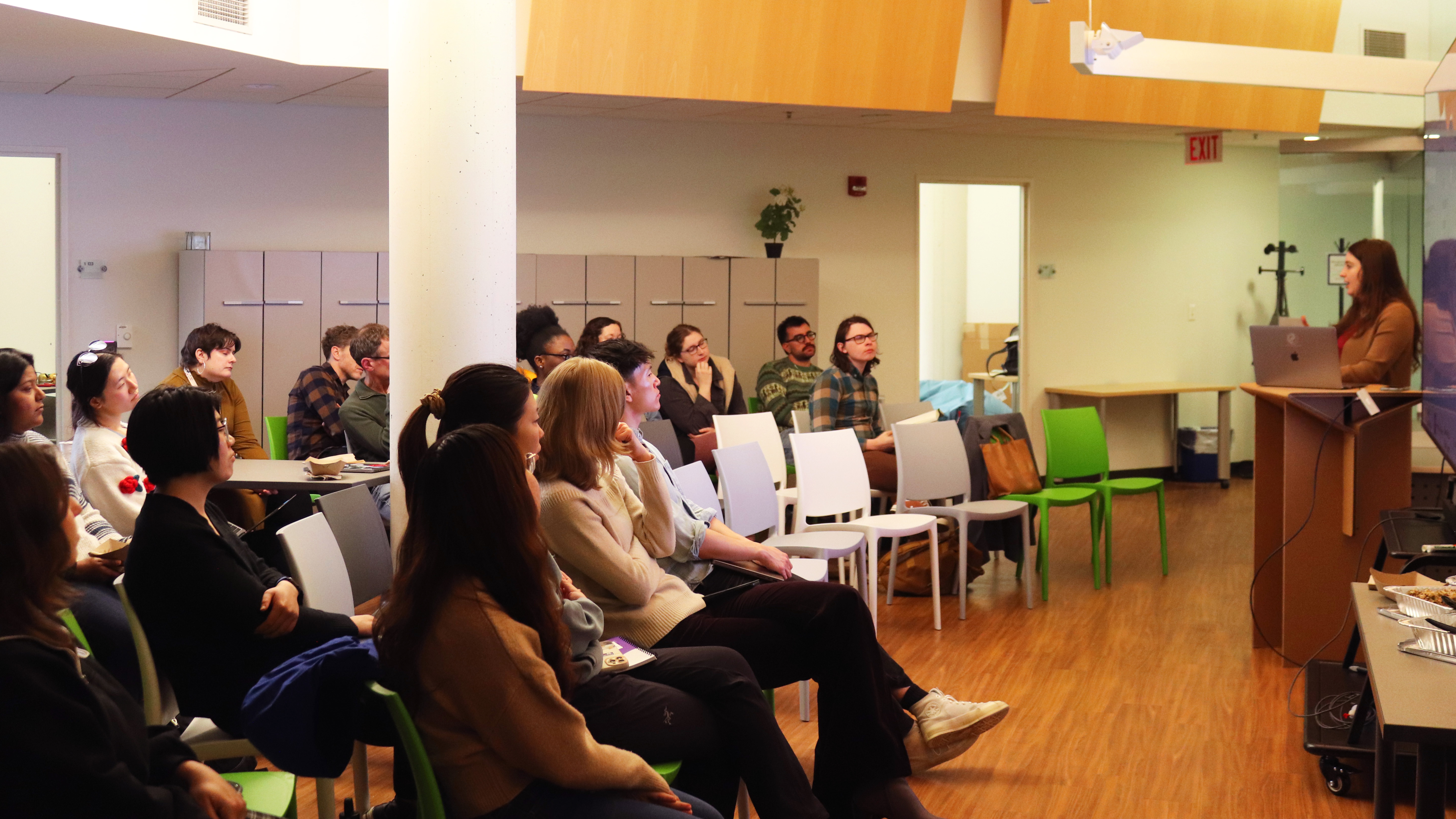TSB Colloquium with Elissa M. Redmiles
Elissa M. Redmiles, the Clare Luce Booth Assistant Professor of Computer Science at Georgetown University and Faculty Associate at the Berkman Klein Center for Internet and Society at Harvard University, joined Technology and Social Behavior (TSB) PhD students, as well as faculty members and staff, to discuss internet governance and digital safety lessons discovered from her extensive research into digital intimacy.

Elissa dove into two adjacent topics: non-consensual intimate content (NCII), when images, videos, texts, etc., containing intimate or explicit content are shared without the knowledge and consent of the sender, and AI-generated intimate content, where software systems and AI models are used to artificially-generate a fake image or video of someone in an intimate or explicit setting. For the former, Elissa explained the reasons people might engage in an online exchange of intimate content: (1) increasing self-confidence, (2) relationship building, and (3) community acceptance, and defines the ways individuals counter the saving and dissemination of this content with technological and interpersonal strategies such as (1) removing the metadata before sending the content, (2) adding identifying watermarks, and (3) sending disappearing messages.
As for “deepfakes,” the colloquial term for AI-generated intimate or explicit content, the battle to prevent their creation or find and remove them from the internet becomes much more difficult. Due to society’s increasing presence on social media platforms and the migration of essential services and resources to the internet, people divulge and share considerably more of themselves than ever before. Therefore, nefarious users have more content with which to create the deepfakes. While there’s currently no practical solution to preventing or hindering deepfakes, Elissa and her research prove the need for improved safety within online spaces.

The TSB Colloquium series is organized by the Technology and Social Behavior PhD program at Northwestern University, led by the Director of Graduate Studies, Agnes Horvat. Elissa Redmiles was invited to speak by center co-director Darren Gergle, and the talk was held in the Center for Human-Computer Interaction + Design space.
